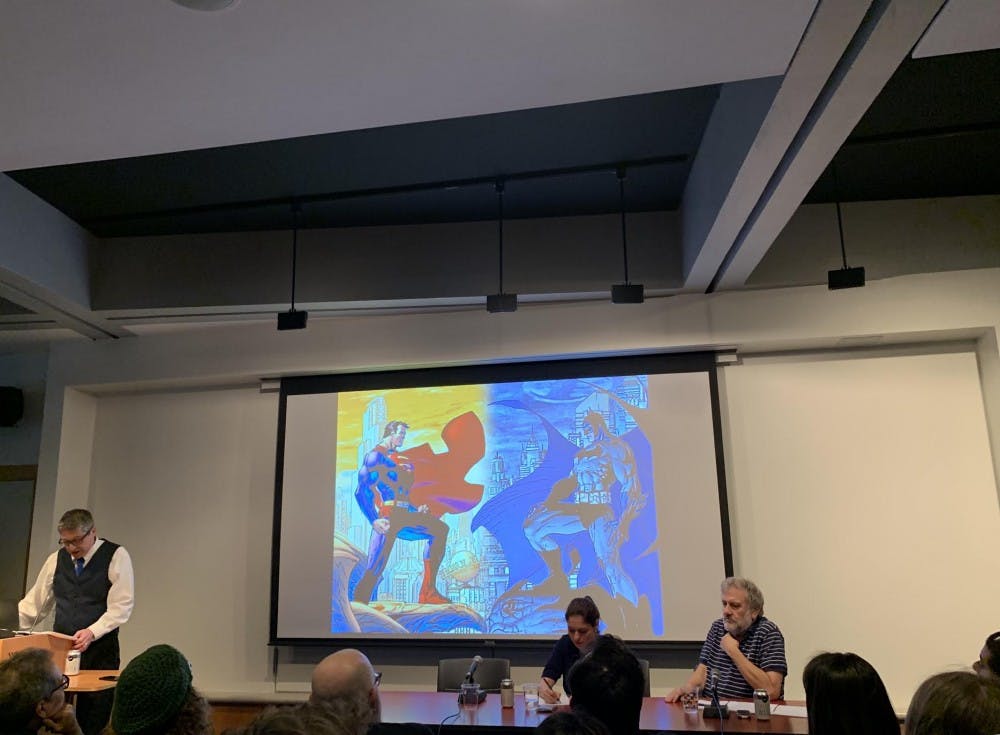To University of Oregon English professor Ben Saunders, superheroes are more than mere entertainment on a Marvel movie night. Rather, he argues, they can shed light on the deeper psychology of love, loss, and life.
On Wednesday, Saunders, Slovenian journalist and film critic Jela Krečič, and professor, author, and new-age philosopher Slavoj Žižek convened at Betts Auditorium to discuss superheroes, film, and their relation to human nature at a panel entitled “Superheroes on the Couch.”
Sponsored by the Department of English, the two-hour panel discussion began with Saunders’ analysis of the relationship between Superman and Batman. Saunders argued that though their duality is apparent, the two still constitute one entity. While Superman stands as the morally and physically superior hero, Batman serves as Superman’s “Jungian shadow,” a projection of the despicable aspects of human nature.
Thus, according to Saunders, Batman is not Superman’s opposite but rather his extension, with the former embodying the latter’s dark side.
Saunders further argued that Batman’s entire identity is founded in the repression of his parents’ deaths. Both Batman and the Joker are “responding in an absurd way to the gross injustice of life.” Since confronting those evils is distressing, Saunders said, we resort to a Freudian cycle of repression and projection.
Krečič continued the discussion by claiming that Batman represses the loss of his parents by spending his life fighting “low-level crime,” rather than addressing its underlying causes. She argued that doing so helps him cope with their absence and thus represents an essentially human response.
Žižek focused on the relationship between Batman and the Joker, arguing that the two are very similar in essence, but that the Joker has developed to accept his evil. He stated that it is important for us to learn from the Joker and accept our vices, extending this claim to Greta Thunberg, “my ethical hero,” who is unapologetically outspoken.
He stated that Thunberg defines a new age of femininity and concluded that we “need more toxically masculine women,” drawing laughter from the crowd.
Žižek also offered a particularly controversial comment, which faced resistance from members of the audience. He said that Black Panther’s “Wakanda and black wisdom is bullshit,” claiming the film did not represent a fair dialogue of African-American empowerment.
During the subsequent question-and-answer session, a visibly upset heckler interrupted the three panelists, saying that the discussion had been “very one-sided.” The panel concluded immediately thereafter.









